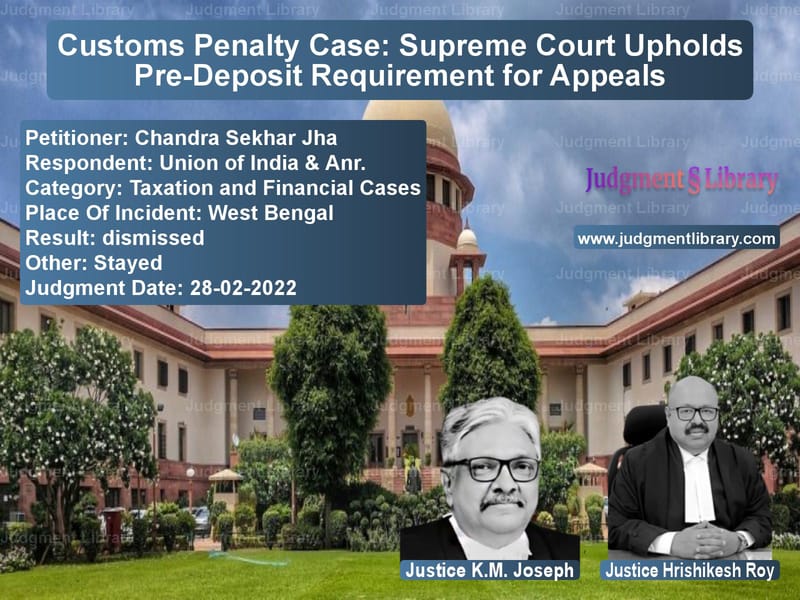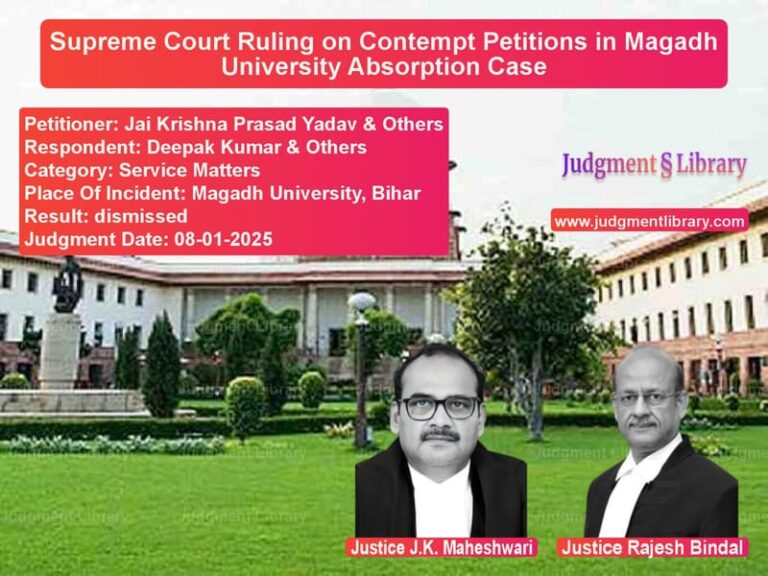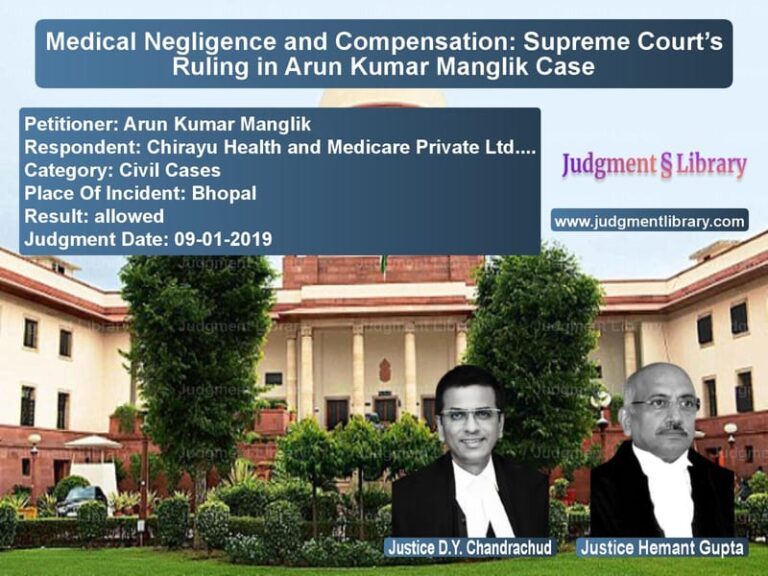Customs Penalty Case: Supreme Court Upholds Pre-Deposit Requirement for Appeals
The Supreme Court, in its judgment dated February 28, 2022, ruled against the appellant Chandra Sekhar Jha, upholding the mandatory pre-deposit requirement under Section 129E of the Customs Act, 1962. The Court dismissed his appeal and granted him an additional two months to comply with the deposit requirement.
Background of the Case
The case originated from an alleged gold smuggling incident involving Chandra Sekhar Jha. He was intercepted while traveling on a train, and authorities accused him of smuggling gold into India from Bangladesh. The Commissioner of Customs (Preventive), West Bengal, Kolkata, imposed a penalty of Rs. 75 lakhs on him.
The appellant challenged the penalty before the Customs, Excise and Service Tax Appellate Tribunal (CESTAT), Kolkata, in 2017, but his appeal was dismissed because he had not made the mandatory pre-deposit as required under Section 129E of the Customs Act.
Aggrieved, he moved the Calcutta High Court, which upheld the Tribunal’s order, leading him to approach the Supreme Court.
Legal Provisions Involved
The dispute centered around the interpretation of Section 129E of the Customs Act, which mandates a pre-deposit before an appeal can be entertained. The law was amended by the Finance (No. 2) Act, 2014, introducing fixed percentages for pre-deposit instead of full penalty amounts.
Arguments Presented
Petitioner’s (Chandra Sekhar Jha) Arguments
The appellant contended:
- The offense took place on February 28, 2013, before the amendment to Section 129E in 2014.
- The earlier version of the law provided the appellate authority discretion to waive the deposit requirement, which should apply to his case.
- The mandatory pre-deposit requirement was harsh and onerous, making access to justice difficult.
Respondents’ (Union of India) Arguments
The Union of India countered:
- The appellant’s penalty order was passed on November 23, 2015, after the amendment, making the new version of Section 129E applicable.
- The amendment eliminated judicial discretion for waiving the pre-deposit requirement.
- The appellant was only required to deposit 7.5% of the penalty amount (instead of the entire Rs. 75 lakhs), making it more lenient than the previous law.
Supreme Court’s Observations
On Applicability of the 2014 Amendment
The Court ruled that:
“The substitution of Section 129E by Act 25 of 2014 brings about a sweeping change, reducing the pre-deposit requirement to a percentage instead of the full disputed amount.”
The Court clarified that since the penalty order was passed in 2015, the amended provision applied.
On the Discretionary Power of Appellate Authorities
The Court noted:
“Under the earlier provision, the Commissioner (Appeals) or Tribunal had discretion to waive pre-deposit. However, the 2014 amendment removed this discretion, making pre-deposit mandatory.”
The Court ruled that the legislature’s intent was to create a fixed and predictable system for appeal requirements.
On Hardship in Complying with Pre-Deposit
The Court rejected the argument that the pre-deposit was onerous:
“The new provision scales down the deposit requirement to 7.5% of the disputed amount, ensuring a fair balance between access to justice and safeguarding revenue interests.”
Final Judgment
The Supreme Court ruled:
- The appeal was dismissed.
- The appellant was granted an extension of two months to comply with the pre-deposit requirement.
- Failure to comply would mean his appeal remains rejected.
Implications of the Judgment
This ruling has significant implications:
- Precedent for Pre-Deposit Rules: The judgment affirms that all appeals filed after the 2014 amendment must comply with the new pre-deposit requirements.
- Elimination of Judicial Discretion: Appellate authorities no longer have the power to waive pre-deposits, ensuring uniform application of the law.
- Balancing Justice and Revenue Protection: The Court recognized that the amendment made the appeal process more accessible while protecting government revenue.
The Supreme Court’s ruling strengthens the mandatory nature of pre-deposit requirements, preventing misuse of the appellate process.
Petitioner Name: Chandra Sekhar Jha.Respondent Name: Union of India & Anr..Judgment By: Justice K.M. Joseph, Justice Hrishikesh Roy.Place Of Incident: West Bengal.Judgment Date: 28-02-2022.
Don’t miss out on the full details! Download the complete judgment in PDF format below and gain valuable insights instantly!
Download Judgment: chandra-sekhar-jha-vs-union-of-india-&-anr-supreme-court-of-india-judgment-dated-28-02-2022.pdf
Directly Download Judgment: Directly download this Judgment
See all petitions in Income Tax Disputes
See all petitions in Tax Evasion Cases
See all petitions in Tax Refund Disputes
See all petitions in Banking Regulations
See all petitions in Judgment by K.M. Joseph
See all petitions in Judgment by Hrishikesh Roy
See all petitions in dismissed
See all petitions in Stayed
See all petitions in supreme court of India judgments February 2022
See all petitions in 2022 judgments
See all posts in Taxation and Financial Cases Category
See all allowed petitions in Taxation and Financial Cases Category
See all Dismissed petitions in Taxation and Financial Cases Category
See all partially allowed petitions in Taxation and Financial Cases Category







